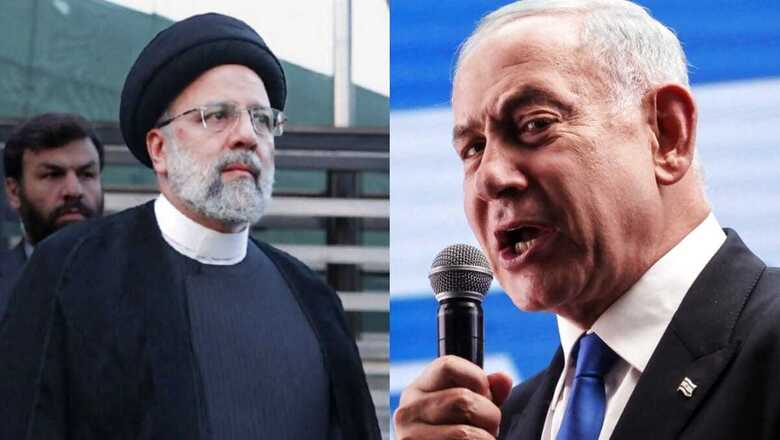
views
Israel has said on Monday that it will not let Iran ‘establish the equation’ in the West Asian region and maintained that Saturday’s missile barrage will not go unanswered.
This has raised concerns in the region that it spark a wider regional war even though the Jewish state has sought to assuage the international community by saying it will not do anything to widen the conflict.
If reports from the US are to be believed, Israel could be poised to take a step in that direction by striking Iranian proxies in the region. by US broadcaster NBC, citing four US officials, said that Israel could limit its retaliation by striking key targets outside of Iran.
The US officials made the assessment based on their conversations with Israeli officials and claimed that Israel’s approach may since have shifted because the Iranian attack did not cause serious damage due to which it may pursue a less aggressive response.
However, as of Monday morning, the Israeli war cabinet, set in the aftermath of the October 7 Hamas-led attacks, said that the response to the missile barrage will be given to Iran ‘clearly, forcefully’.
Abolfazl Amoui, spokesperson for Iran’s National Security and Foreign Policy Committee, also said that Iran stands prepared to use weapons it has not previously deployed to address any potential escalation by Israel.
The interception of more than 300 suicide drones and missiles has helped Iran learn how Israel and the US and its other allies thwarted their attack. Jonathan Schanzer, a researcher at the Foundation for Defense of Democracies in Washington, told the Wall Street Journal that Iran was testing the missile-defence system as well as the resolve of the US and other regional countries.
While Iran has the support of Lebanon and Yemen and its proxy militias, Israel also must take into consideration the concerns of allies like Jordan and Saudi Arabia and the UAE. These three are critical of Israel’s treatment of Palestinians and its war on Hamas but they dislike Iran equally.
The report by the Wall Street Journal said that since Jordan helped Israel by intercepting some of the drones and missiles and opened up its airspace, along with the other partners in the region, these nations could influence and shape the Israeli response to Iran.
Israel is also leading a diplomatic response. Israeli foreign minister Israel Katz said he sent letters to 32 countries and spoke with dozens of foreign ministers on Tuesday urging them to declare the Islamic Revolutionary Guard Corps as a terror group and impose sanctions on the Iranian missile project in a bid to contain Iran.
Ali Vaez, director of the Iran Project at the International Crisis Group, told the Wall Street Journal that Iran’s inability to hurt Israel could have its own repercussions.
Iran has seen its own missile barrage as well as proxy attacks by Hezbollah or Hamas fail. Vaez fears it could tempt the clerical state into thinking about the “ultimate deterrent”, referring to nuclear weapons.
“If they conclude that their conventional deterrence, which is really their missile and drone systems, really is insufficient, they will probably conclude that the only outlet left open to them is the ultimate deterrent,” Vaez was quoted as saying by the Wall Street Journal.




















Comments
0 comment